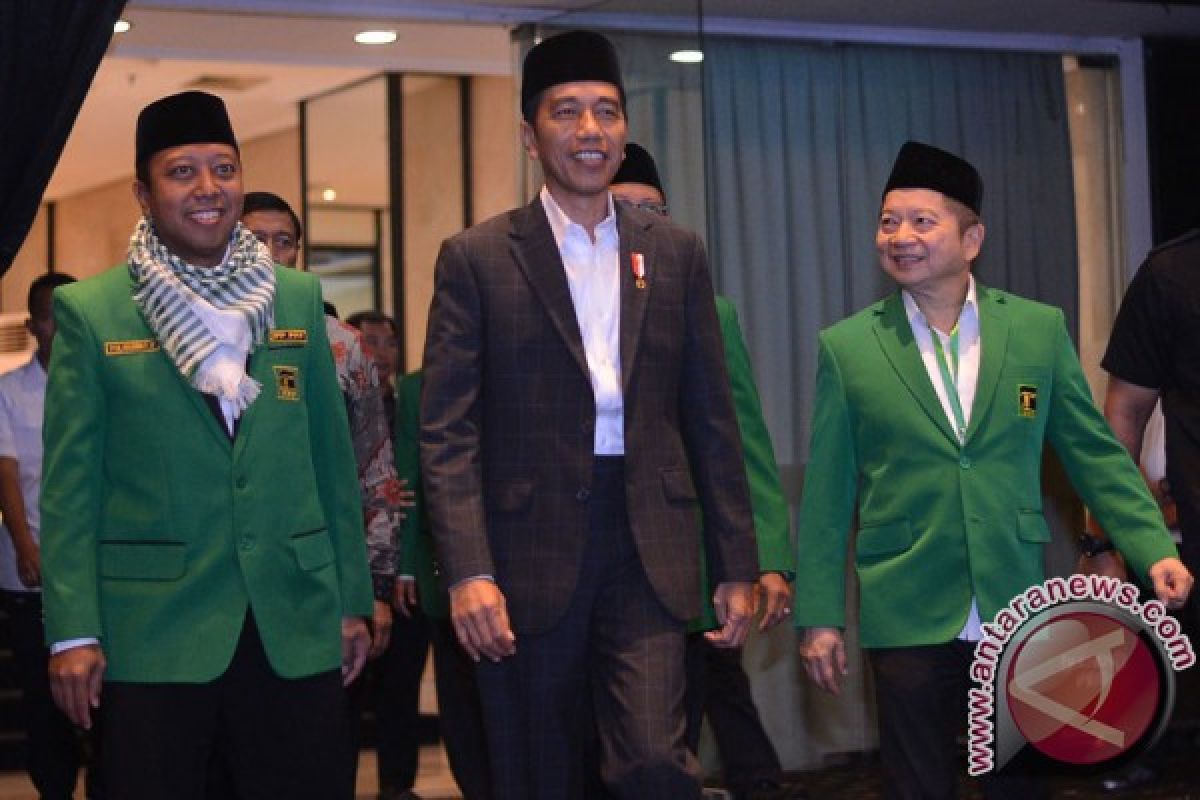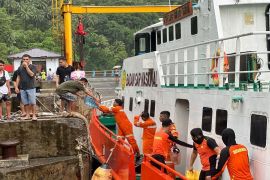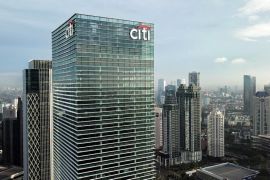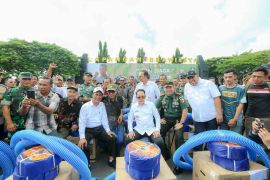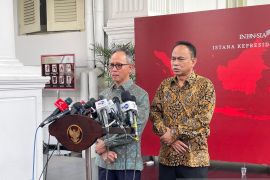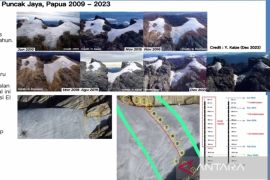"God willing, the rate will be below double digits and entering single digit. That is our target," the president said.Jakarta (ANTARA News) - President Joko Widodo expressed optimism here on Tuesday that the poverty rate would decline to a single digit following various poverty alleviation programs he has implemented so far.
"God willing, the rate will be below double digits and entering single digit. That is our target," he noted at a national meeting of members of regional legislative assemblies from the United Development Party.
According to data of the Central Bureau of Statistics, the poverty rate had declined from 10.64 percent in 2016 to 10.12 percent in 2017.
Referring to the Family Hope Program, a social aid program that has not often been in the daily public discourse, the president noted that it had covered six million families so far.
"This year, 10 million families will receive it through good assistance. If it has reached all families, God willing, the poverty rate will be below double digits and enter single digit," he added.
He noted that the government had also implemented "Kartu Indonesia Pintar," or the Indonesia smart card, education subsidy program for 18 million children of poor families so far, including orphans numbering some 890 thousand.
"Under the program, they can receive education at elementary, junior high, and senior high or vocational schools," he remarked.
He said the government had also distributed "Kartu Indonesia Sehat," or Indonesia healthy card-KIS, to 93 million people to get access to free health services at sub-district healthcare service centers called Puskesmas or hospitals.
"I have checked at a hospital. I visited a third-class ward. How many are using KIS? I found 96 percent of the patients had used it. It means the card is beneficial for the people," he stated.
The president remarked that he had continued to promote these facilities among the people to demonstrate that the government has not only developed infrastructure but also social sectors, not in the form of cash handout, but education and health programs.
The head of state explained that the "Program Dana Desa," or village fund, was aimed at increasing the circulation of money in villages.
"Tell the village heads that they must not use the money to buy supplies from the towns," he stated while meeting participants.
He pointed out that in 2015, a total of Rp20.37 trillion was distributed to villages, and in 2016, the funds had increased to Rp46.9 trillion, Rp60 trillion in 2017, and Rp60 trillion in 2018.
"In the past four years, a total of Rp187 trillion has been distributed in villages. It is huge. Efforts must be made to ensure that the money is circulating in the villages. It must be prevented from going back to Jakarta or other cities," he noted.
The president said he had ordered the village heads to purchase supplies, such as cement, from villages or sub-districts but not from faraway places.
The president believes that if more money circulated in villages, it would increase the purchasing power of the people as well as consumption.
"This will have a significant impact on economic growth if all village heads are aware of the idea," he added.
Reported by Agus Salim
(H-YH/INE)
(T.SYS/B/KR-BSR/A014)
Reporter: antara
Editor: Heru Purwanto
Copyright © ANTARA 2018
